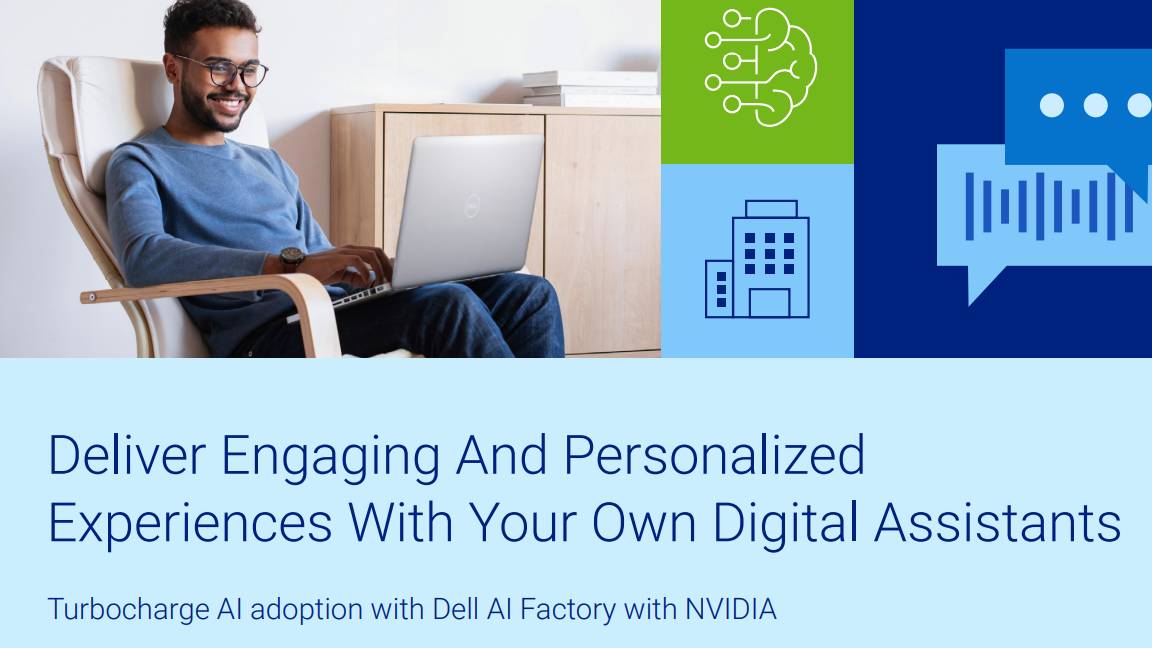UK gov releases new guidance for upskilling employees in AI
The new advice is intended to support businesses in improving AI skills


The government has released guidance on how businesses can boost their workers' AI skills and is calling for input for future updates.
The aim is to set out the key knowledge, skills and behaviors that employees should have in order to reap the benefits of AI safely, including how to use tools such as Large Language Models, and how to manage data safely and securely.
The guidance was developed in partnership with the Innovate UK BridgeAI programme and the Alan Turing Institute.
"Businesses are increasingly interested to learn how AI could enhance their productivity and competitiveness, but they also want to ensure they have the skills and competencies to adopt these technologies safely and ethically," said Matt Forshaw, senior advisor for skills at the Alan Turing Institute.
"The new framework clarifies routes to workforce upskilling and will support businesses across the country to harness the value of AI. This project is underpinned by strong partnership working and we look forward to seeing the impact of this project on the current and future AI workforce."
The guidance categorizes people into four types. 'AI citizens' are members of the public, customers or employees. 'AI workers' don't work directly in AI on a day-to-day basis but are impacted by it. 'AI professionals' are employees with specific responsibilities around data and AI, while AI Leaders are people in senior positions who help to oversee and introduce emerging technologies, such as individuals in board-level roles.
The guidance then covers five 'dimensions':
Get the ITPro daily newsletter
Sign up today and you will receive a free copy of our Future Focus 2025 report - the leading guidance on AI, cybersecurity and other IT challenges as per 700+ senior executives
- Privacy and stewardship involves ensuring the protection of personal and sensitive data, managing sensitive data, and data stewardship and standards.
- Specification, acquisition, engineering, architecture, storage and curation covers data collection and management, data engineering and deployment.
- Problem definition and communication includes relationship management
- Problem solving, analysis, modeling, visualization covers identifying and applying technical solutions and project management approaches, along with data preparation and feature modeling.
- Evaluation and reflection looks at performance and outcomes, including where changes need to be made and whether there are any ethical considerations that should be taken into account.
"The recognition that AI is part of industry’s future and our workforce’s future is just the start of integrating AI into business at a grass-roots level," said professor Will Drury, executive director - digital and technologies at Innovate UK.
RELATED RESOURCE

Explore the complex world of today’s VPN management and understand its vulnerabilities to diverse cyberattacks
DOWNLOAD NOW
"Innovate UK’s BridgeAI programme concentrates on four key sectors – this piece of work will build on that by engaging with industry across the board."
The advice, said the authors, is intended as an evolving document and is now up for public consultation. The aim is to develop sector-specific case studies and resources and a full skills framework, to be published early in 2024.
"Making sure workers up and down the country have the skills they need for their jobs with and in AI is a key part of our strategy in making the UK an AI powerhouse and ensuring the skills of our workforce keep pace with this rapidly developing technology," said minister for AI, Jonathan Berry.
"This guidance will be vital in helping us realize that ambition, continuing an important conversation with businesses across the UK to make sure the steps they can take are practical, functional, and successful."
Emma Woollacott is a freelance journalist writing for publications including the BBC, Private Eye, Forbes, Raconteur and specialist technology titles.
-
 Bigger salaries, more burnout: Is the CISO role in crisis?
Bigger salaries, more burnout: Is the CISO role in crisis?In-depth CISOs are more stressed than ever before – but why is this and what can be done?
By Kate O'Flaherty Published
-
 Cheap cyber crime kits can be bought on the dark web for less than $25
Cheap cyber crime kits can be bought on the dark web for less than $25News Research from NordVPN shows phishing kits are now widely available on the dark web and via messaging apps like Telegram, and are often selling for less than $25.
By Emma Woollacott Published
-
 Future focus 2025: Technologies, trends, and transformation
Future focus 2025: Technologies, trends, and transformationWhitepaper Actionable insight for IT decision-makers to drive business success today and tomorrow
By ITPro Published
-
 ‘Archaic’ legacy tech is crippling public sector productivity
‘Archaic’ legacy tech is crippling public sector productivityNews The UK public sector has been over-reliant on contractors and too many processes are still paper-based
By Emma Woollacott Published
-
 How to use LinkedIn to market yourself as an IT professional
How to use LinkedIn to market yourself as an IT professionalwhitepaper Whether you’re updating your LinkedIn profile or creating one for the first time, it’s critical to remain consistent and credible if you hope to raise your profile within the IT industry
By ITPro Published
-
 Public sector improvements, infrastructure investment, and AI pothole repairs: Tech industry welcomes UK's “ambitious” AI action plan
Public sector improvements, infrastructure investment, and AI pothole repairs: Tech industry welcomes UK's “ambitious” AI action planNews The new policy, less cautious than that of the previous government, has been largely welcomed by experts
By Emma Woollacott Published
-
 Top five security considerations for Generative AI (Gen AI)
Top five security considerations for Generative AI (Gen AI)whitepaper Protection across AI attack vectors
By ITPro Published
-
 Prepare for the future now. Achieve greater, secure productivity, using AI with the latest Dell PCs powered by Intel® Core™ Ultra and Copilot
Prepare for the future now. Achieve greater, secure productivity, using AI with the latest Dell PCs powered by Intel® Core™ Ultra and Copilotwhitepaper Protection across AI attack vectors
By ITPro Published
-
 Top five security considerations for generative AI (Gen AI)
Top five security considerations for generative AI (Gen AI)whitepaper Accelerate your adoption of a secure and scalable infrastructure foundation with Dell AI Factory with NVIDIA
By ITPro Published
-
 Deliver engaging and personalized experiences with your own digital assistants
Deliver engaging and personalized experiences with your own digital assistantswhitepaper Protection across AI attack vectors
By ITPro Published